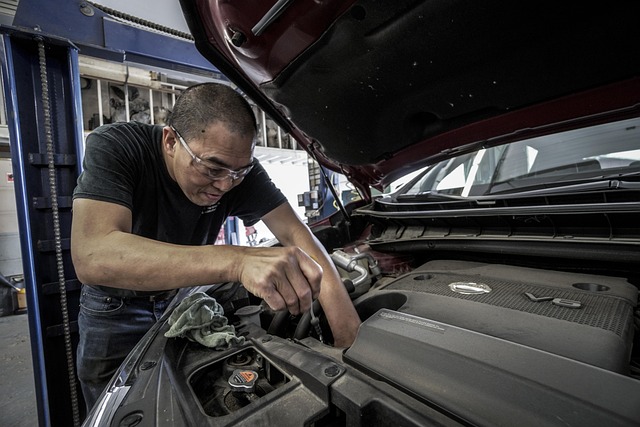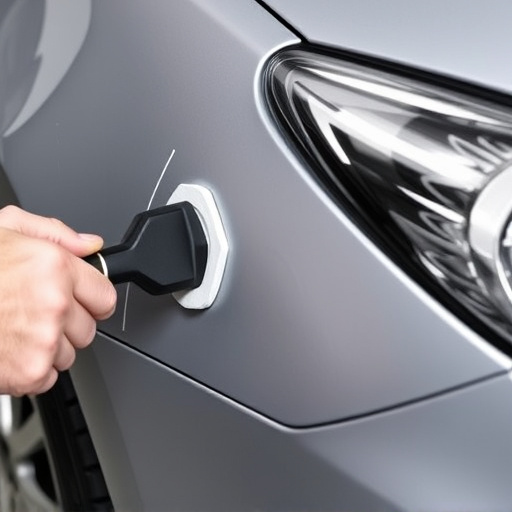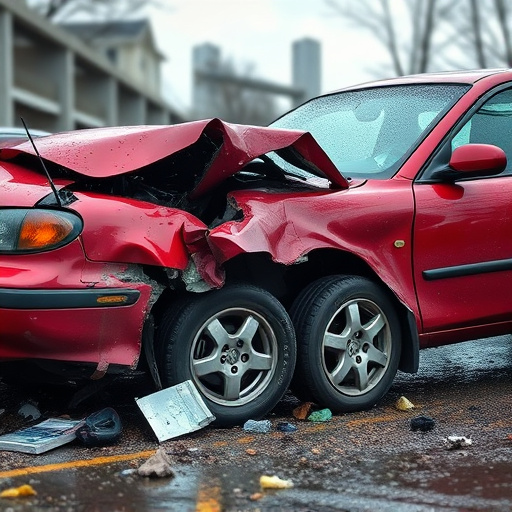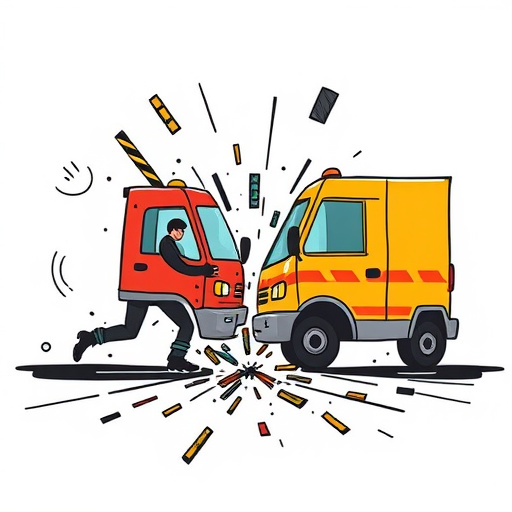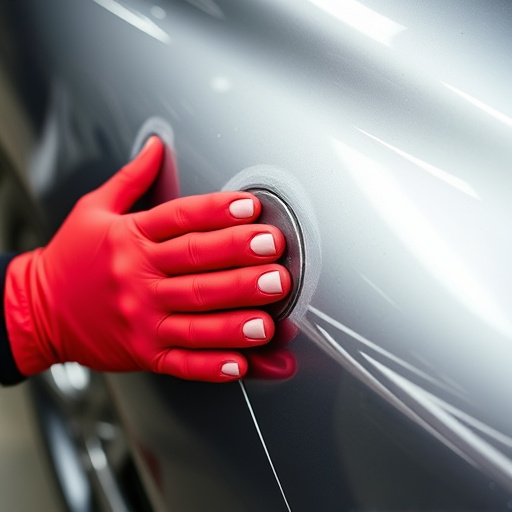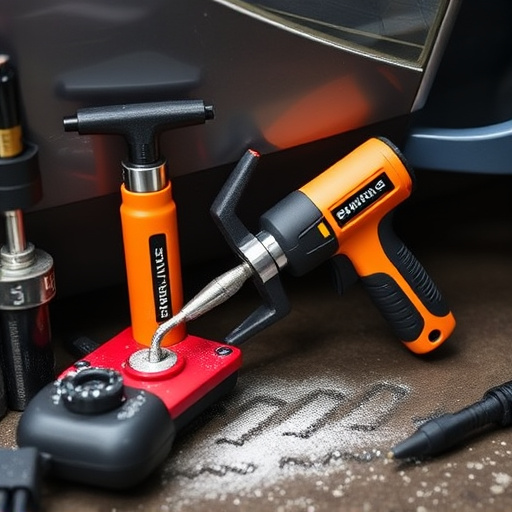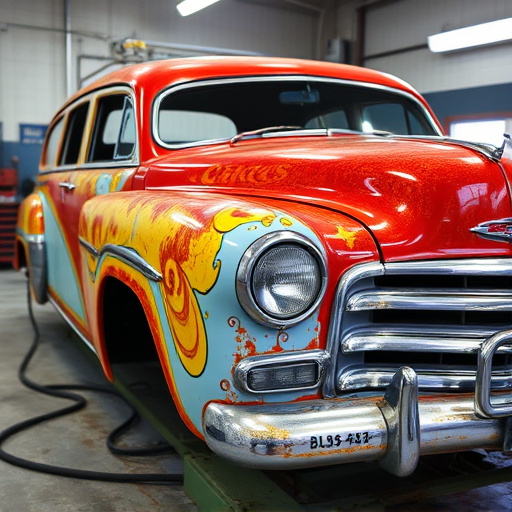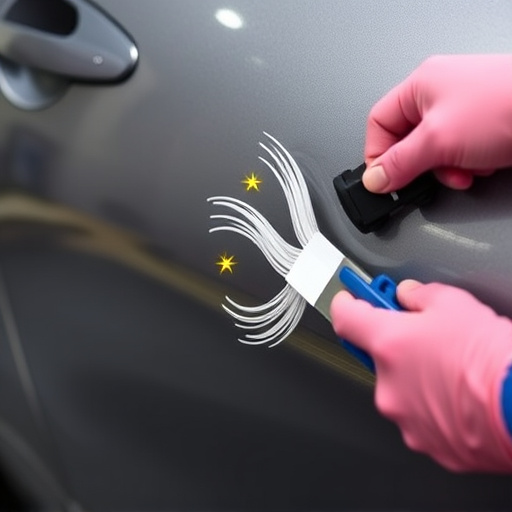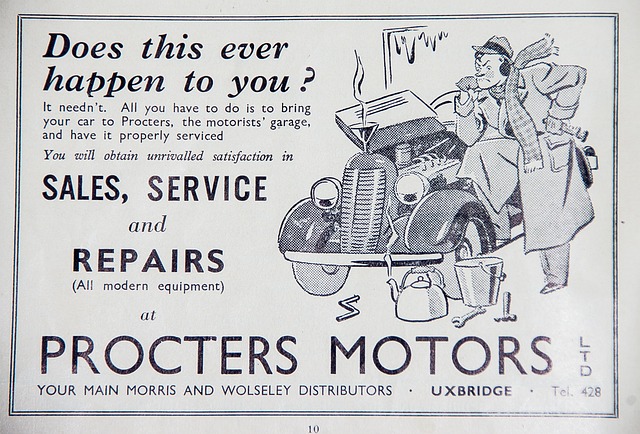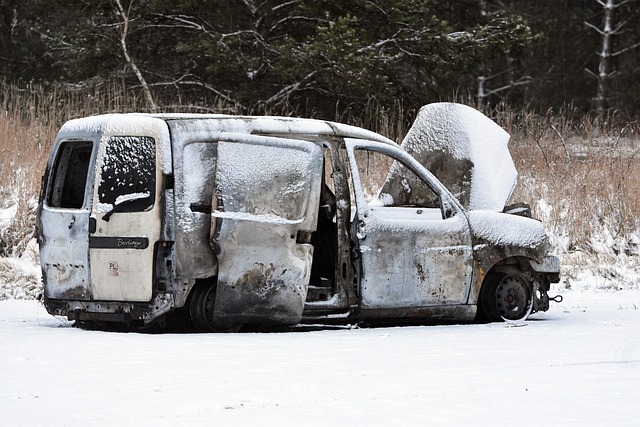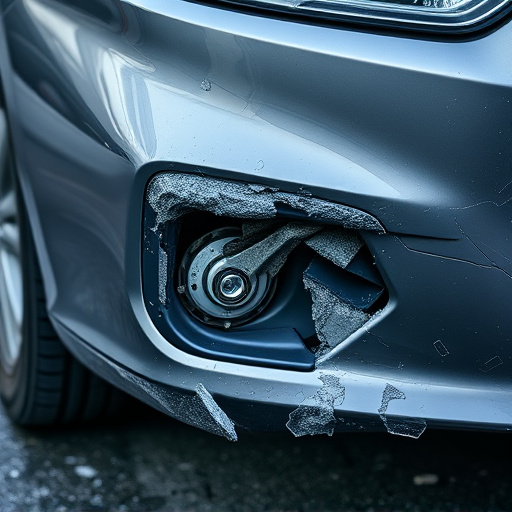Collision repair technicians must adapt to emerging technologies like paintless dent repair, advanced tools (diagnostic equipment, CAD software, robotics), and AI-driven systems. Soft skills become increasingly crucial for client interaction and navigating evolving vehicle designs. Continuous learning is essential as automation and AI transform the industry, offering opportunities for specialized roles in oversight, calibration, and quality assurance, leading to faster, more precise repairs and diverse career paths.
The future of work for collision repair technicians is undergoing a transformative phase, driven by technological advancements. As the automotive industry evolves, so too must the skills and capabilities of these professionals. This article explores the evolving landscape for collision repair technicians, delving into the new skills required, the impact of automation and AI on traditional work processes, and emerging opportunities and career paths within the industry. By understanding these trends, collision repair technicians can navigate the changing job market and secure their place in the future of automotive services.
- Evolving Skills Required for Collision Repair Technicians
- Automation and AI: Disrupting Traditional Work Processes
- New Opportunities and Career Paths in the Industry
Evolving Skills Required for Collision Repair Technicians
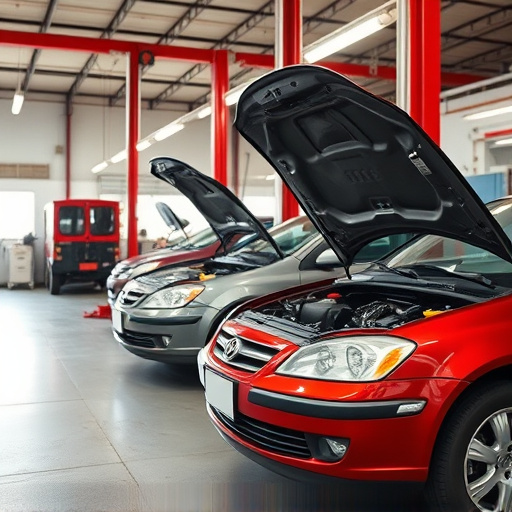
As the automotive industry continues to evolve, so too must the skills required for collision repair technicians. Traditional repair methods are being supplemented and, in some cases, replaced by innovative technologies such as paintless dent repair, which reduces the need for extensive paint jobs. Collision repair technicians increasingly need to be adept at using advanced diagnostic tools, computer-aided design software, and robotic systems to ensure precise and efficient repairs.
Beyond technical proficiency, soft skills are becoming equally important. Communication and customer service abilities are crucial as collision repair technicians often interact directly with clients, explaining complex processes and managing expectations. Adaptability is another key asset, as the industry adapts to new vehicle designs, materials, and safety standards. Keeping up with these evolving demands means that successful collision repair technicians will be those who embrace continuous learning and stay current with advancements in both technology and best practices within the field of auto maintenance.
Automation and AI: Disrupting Traditional Work Processes
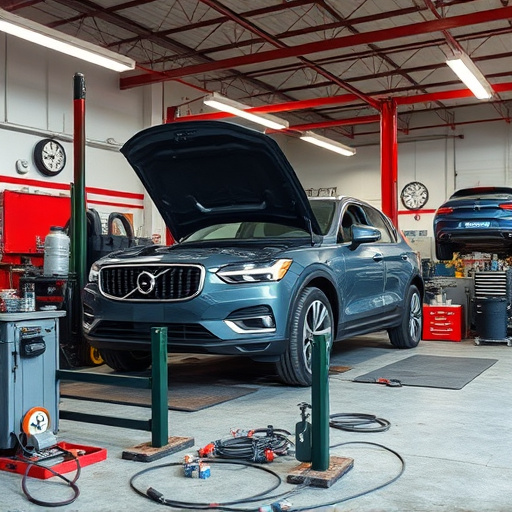
The future of work for collision repair technicians is being significantly shaped by advancements in automation and artificial intelligence (AI). These technologies are disrupting traditional work processes, promising to transform the way repairs are carried out. AI-driven systems can analyze damage patterns more accurately than human eyes, streamlining the initial assessment stage and reducing human error. Automated robotic arms are already capable of performing precise tasks such as straightening panels and even applying paint, potentially replacing some manual labor.
While these changes may seem unsettling for some collision repair technicians, they also offer opportunities for growth and specialization. Technicians will likely evolve into roles focused on overseeing and maintaining advanced machinery, calibrating AI systems, and ensuring the quality of automated repairs. This shift could lead to more efficient workflows, reduced turnaround times, and improved customer satisfaction as cars are restored to pre-accident condition faster and with higher precision, including specialized tasks like car dent repair, hail damage repair, and auto painting.
New Opportunities and Career Paths in the Industry
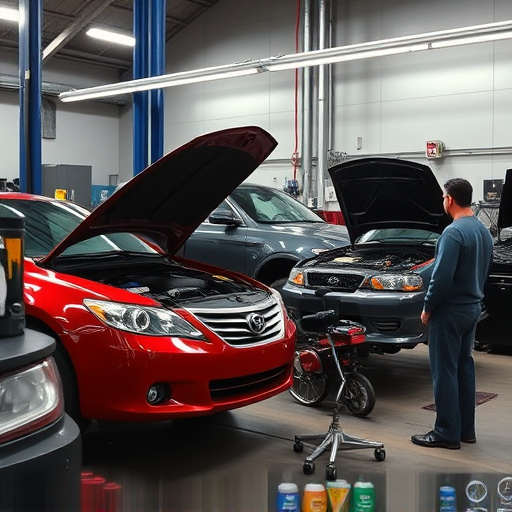
The evolving landscape of work presents exciting prospects for collision repair technicians. As technology advances, new opportunities emerge, allowing these professionals to diversify their skills and career paths. With the increasing demand for specialized automotive services, collision repair technicians are no longer confined to traditional roles. They can now explore diverse avenues such as advanced paintless dent removal techniques, which require a keen eye for detail and precision. This skill set is highly sought after in the automotive industry, offering opportunities in both independent workshops and fleet repair services.
The future also holds potential for those interested in managing and leading teams. Many collision repair shops are expanding their operations, creating a need for skilled technicians to take on supervisory roles. Additionally, with the rise of autonomous vehicles, there will be a growing demand for specialists who can handle the unique repairs these cars require. This shift could open doors for collision repair technicians to become experts in electric vehicle (EV) maintenance and repairs, shaping the future of sustainable automotive care.
As the automotive industry continues to evolve, so too will the role of collision repair technicians. With advancements in automation and AI disrupting traditional work processes, technicians must adapt and acquire new skills to thrive in the future of work. Despite these changes, the demand for skilled collision repair professionals remains high, opening up exciting opportunities for career growth and diverse paths within the industry. By embracing technological advancements and staying agile, collision repair technicians can navigate this transformative landscape and secure promising futures.
